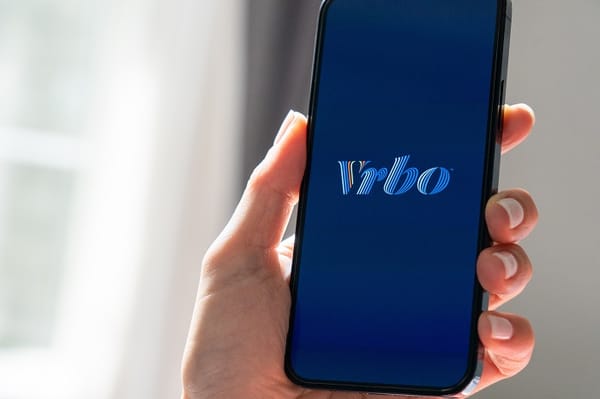Simple Guide to Airbnb Accounting for Airbnb Hosts and Investors

Key Takeaways
- Report gross rental income before Airbnb fees. That’s what the IRS requires.
- Keep detailed records and receipts for every expense to claim full deductions.
- The 14-day rule: rent less than 14 days a year, and your income isn’t taxable.
- File on Schedule E (passive income) or Schedule C (active business), depending on services offered.
- Use accounting software or hire a professional to manage multiple properties efficiently.
- Airbnb accounting can be tricky, especially for hosts who manage multiple properties. Airbnb won't handle your taxes or file your tax return.
Airbnb accounting can be tricky, especially for hosts who manage multiple properties. Airbnb won't handle your taxes or file your tax return.
For your short-term rental business, you want to find the simplest method to track all income and expenses.
Meticulous record-keeping is what you need for tax reporting and to deduct every possible business expense. Failing to claim all the deductions you are entitled to means you are leaving money on the table.
To clear up any confusion that might come up, let’s look at how vacation rental accounting works in simple terms and outline the best tips for Airbnb hosts, including when it might make sense to hire an accountant.

How is Airbnb Accounting Different From General Accounting
Accounting for an Airbnb business follows the same basic principles as any other industry: track income, record expenses, and maintain general ledger entries and profit and loss statements. But a couple of quirks make Airbnb accounting a bit trickier.
The single biggest source of confusion is the difference between the money you receive and the rental income you must report to the tax authorities. Airbnb payouts show the net amount after platform fees, but for taxes, you need to report gross income before service fees. Confusing net deposits with taxable revenue is a common mistake that can lead to underreporting.
Another challenge is this: In standard accounting, income typically ties directly to a single customer or invoice, but Airbnb requires property-level tracking. Also, a single payout from Airbnb can include multiple reservations from different listings.
We want to assign revenue correctly to each property. Hosts need to reconcile payouts with reservation data, separating income by property.
When Do You Pay Taxes on Airbnb Income
The "14-day rule" dictates the tax status of your short-term rentals. If you rent your primary residence for 14 days or less per year, you’re off the hook — no federal income taxes on that income. Rent it for more than 14 days, and all rental income becomes fully taxable.
What Are the Key Things to Know About Airbnb Accounting?
All your Airbnb income is subject to federal and state taxes, so you need to keep financial reporting in line with IRS requirements. Here is what is most important to remember when it comes to Airbnb accounting.
Accurately report gross rental income
Don’t fall into the trap of reporting only your net income on tax returns. The payouts you receive from Airbnb in your bank account represent your net income (after platform fees).
Financial statements should show gross income (completed payouts) and allowable expenses. Gross earnings include the total reservation amount paid by guests, before Airbnb deducts service fees or issues refunds.
Those fees and refunds count as business write-offs that lower your taxable income. This is how the IRS requires income to be reported.
Keep all receipts
Operating short-term rental properties comes with considerable cleaning and maintenance costs. You'd better track every deductible expense.
In Airbnb accounting, keep receipts for every purchase to maintain accurate records. Each receipt verifies financial transactions related to your rental business, from cleaning fees and maintenance costs to supplies and utilities.
When tax season comes around, these receipts make it easy to write off Airbnb expenses and show the IRS that your deductions are legitimate. Without proper proof, you’re leaving money on the table. Keeping your receipts organized helps you stay compliant and keep more of your Airbnb income.
Know your tax obligations
1. Federal and State Taxes
First, you pay income tax, which means reporting your Airbnb rental income on your federal and state tax returns.
Self-employment taxes apply if you provide substantial services beyond simply renting the space, such as hosting events or preparing meals. In that case, your income is no longer considered passive, and you must pay self-employment tax.
2. Local Taxes
For Airbnb hosts, Transient Occupancy Taxes (TOT) and Occupancy or Lodging Taxes are local taxes imposed on the act of providing short-term accommodations, typically defined as stays of less than 30 consecutive days. These taxes function identically: they are calculated as a percentage of the rental rate and are generally paid by the guest.
Airbnb automatically collects and remits these local taxes on behalf of hosts in many U.S. jurisdictions. However, it's crucial for hosts to verify whether Airbnb handles this process in their specific area. If Airbnb does not collect and remit the taxes, hosts are responsible for doing so directly to the local tax authorities.
How Airbnb Accounting Works
Let's take a closer look at how accounting works for Airbnb rentals. Think of these as concrete steps you can take towards keeping your books in order.
Create a separate bank account
For Airbnb accounting purposes, keep your personal and business accounts separate. It is much easier to track income, expenses, and write-offs.
If you use your personal account for Airbnb income and expenses, it can become confusing to reconcile transactions, accurately report rental income, or claim Airbnb expenses like cleaning fees, supplies, and maintenance.
A dedicated account ensures clear records, simplifies tax filing, and helps you understand each property’s profitability.
Record income and expenses
Your reported income will be higher than your Airbnb payouts, as you need to report gross income. To deduct expenses properly, including Airbnb service fees, you must have a good overview of all financial data.
Suppose you have multiple listings with check-ins on the same day. In that case, funds will usually be deposited as a single payout, making it difficult to determine which properties are making or losing money.
Using accounting software can simplify financial management for Airbnb hosts, helping to track income, categorize expenses, and prepare for tax filings.
Divide expenses into categories
Keeping a neat record of all your expenses is essential for tax deductions and to understand your property’s profitability.
The easiest way to do this is to divide expenses into clear categories, which helps you track spending, prepare profit-and-loss statements, and reconcile accounts quickly. Common expense categories for Airbnb hosts include:
- Advertising – Costs for listing promotions, social media ads, or photography.
- Auto and Travel – Mileage or travel expenses related to managing your rentals.
- Cleaning and Maintenance – Professional cleaning, lawn care, and routine upkeep.
- Commissions – Fees paid to platforms like Airbnb.
- Insurance – Property, liability, or short-term rental insurance policies.
- Legal and Professional Fees – Accountants, attorneys, or tax advisors.
- Property Management Company Fees – Payments to property managers or co-hosts.
- Mortgage Interest – Interest portion of your mortgage payments for rental properties.
- Repairs – Fixes that maintain or restore your property.
- Supplies – Consumables for guests, like toiletries, linens, or kitchen essentials.
- Taxes – Property taxes or other local taxes not collected by Airbnb.
- Utilities – Electricity, water, gas, internet, and other services provided to guests.
- Depreciation – Annual write-offs for the wear and tear of property and major appliances.
Organizing expenses into categories to quickly see where your money goes. Most modern accounting software allows you to set up categories to automatically categorize transactions based on rules, bank feeds, or recurring payments.
File Taxes
Airbnb provides hosts with tax documents to help them report rental income to tax authorities. A typical Airbnb tax report is Form 1099-K, which reports gross payment transactions processed through Airbnb. Hosts who meet certain thresholds will receive this form.
Even if your rental property doesn’t meet this threshold and Airbnb doesn’t send you a tax report, you still need to file it yourself if you rent to guests for more than 14 days.
Airbnb hosts report their rental income on different IRS schedules depending on the services they provide. Suppose your hosting involves substantial services such as daily cleaning, providing meals, transportation, guided excursions, or concierge services. In that case, you report income and expenses on Schedule C and pay self-employment tax.
On the other hand, if your services are insubstantial, such as general maintenance, providing heat, water, or Wi-Fi, and handling trash or simple repairs, your rental income is considered passive and should be reported on Schedule E.

How To Calculate Deductible Expenses for Shared Rooms and Full Units
When deducting expenses from your Airbnb rental income and preparing financial statements for tax authorities, it’s important to separate direct and indirect expenses. Direct expenses are costs specifically tied to your rental activity, like cleaning fees, guest supplies, or Airbnb service fees, and are fully deductible.
Indirect expenses such as mortgage interest, property taxes, utilities, and insurance apply to the entire property. If you rent only part of your home, you cannot deduct the full amount of indirect expenses. Instead, you must divide these expenses between the rental portion and the personal portion.
To calculate deductions for a full rental unit, you can deduct all eligible expenses for the days the property is rented. For shared rentals, such as a single room, indirect expenses must be allocated based on both the rented portion of the property (square footage) and the rental period.
For example, if you rent one bedroom in a 1,500 sq ft home for 90 days and that room represents 15% of the total space, you could deduct 15% of your mortgage interest, utilities, and insurance for those 90 days as rental expenses.
What Is the Best Bookkeeping and Accounting Software for an Airbnb Business
A good accounting system can make Airbnb bookkeeping a lot easier, especially if you’re handling your finances without an accountant.
When choosing accounting software for your Airbnb business, look for these key features:
- Automatic income and expense tracking from Airbnb and your bank.
- Tax-ready reports to simplify filing.
- Multi-property support to manage all listings in one place.
- Easy reporting for owners, co-hosts, or guests.
- Mobile access for managing finances on-the-go.
- Customizable categories to match your Airbnb business needs.
Some notable accounting software brands are:
QuickBooks Online is a widely used accounting software offering robust features like invoicing, expense tracking, and tax reporting.
Xero is a comprehensive cloud-based accounting software suitable for Airbnb hosts managing multiple properties or seeking detailed financial insights.
FreshBooks is a user-friendly accounting software designed for small businesses, making it accessible for Airbnb hosts without extensive accounting knowledge.
Should Airbnb Hosts Hire an Accounting Firm?
Airbnb hosts should consider hiring a bookkeeping and accounting firm once their rental business becomes more complex. Maybe they manage multiple listings on several platforms like Airbnb, Vrbo, and direct booking sites, or operate through an LLC.
Beyond bookkeeping, accountants can also help optimize taxes through advanced strategies such as claiming bonus depreciation or using the short-term rental loophole.
Hiring an accounting firm also makes sense for hosts who treat their Airbnb as a true business and want accurate monthly reports, like profit and loss statements, to track performance and plan for growth. Outsourcing financial management to a tax professional frees up time for investors serious about expanding their portfolios.
FAQ
Do I report my Airbnb income on Schedule E or Schedule C?
It depends on the services you offer. Suppose you simply rent your space and provide basic amenities and cleaning between stays. In that case, you report income on Schedule E. If you offer more substantial services such as daily cleaning, meals, or guided experiences, you report income on Schedule C and pay self-employment taxes.
Will Airbnb issue the Form 1099-K to hosts?
Yes. Airbnb issues a Form 1099-K to U.S. hosts who earn over $20,000 in gross income or have more than 200 transactions in a calendar year. However, if you earn less than that and Airbnb doesn’t issue a form for you, you’ll still need to report your income yourself, since IRS rules apply to anyone renting out their property for more than two weeks a year.
What's the difference between Form 1099-K and Form 1099-NEC?
Form 1099-K reports payment transactions for rental income, while Form 1099-NEC reports payments for services provided by independent contractors.
Will Airbnb withhold taxes for Airbnb hosts?
Airbnb does not withhold income taxes from your payouts. The platform only collects and remits local occupancy taxes in certain jurisdictions. Federal, state, and self-employment taxes are your responsibility.

Key Takeaways on Airbnb Bookkeeping
If you're running a short-term rental business, keep in mind three important things:
- Accurate record-keeping is essential for maximizing tax deductions and being compliant with the IRS.
- Airbnb accounting requires tracking gross income, not just Airbnb payouts.
- Tax obligations depend on your level of service and rental setup.
Keep all business-related receipts and sort them by expense category. This will make it much easier to file taxes, justify deductions, and also for you as a property owner and investor to understand how profitable each property truly is.
The bright side of running an Airbnb is that you can automate much of the manual work with short-term rental software like iGMS. Automate guest communication, assign cleaners, prevent double bookings with an up-to-date calendar, and generate reports in no time, on desktop or mobile app. iGMS has you covered.
About the Author
Zorica Milinkovic is a B2B SaaS writer who is passionate about psychology, marketing, and, when inspiration strikes, cooking. You can find her on LinkedIn.




![Complete Vacation Rental Email Marketing for Hosts [+ Top Tools]](/content/images/size/w600/2026/01/email-marketing.jpg)
